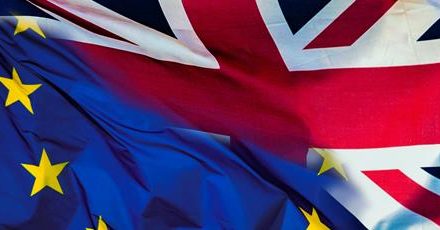Vladimir Putin's recent visit to London for the Olympic Games was also combined with much-publicised political discussions with David Cameron. In the midst of negotiations over Syria, possible collaboration between Rolls Royce and Rosatom, and BP's sale of its 50% stake in TNK-BP, Putin also stated that he would like to see the full roll-out of the Russian Glonass satellite system tied into the positioning of a Glonass signal station in the UK “…to make the signal for Europe even more precise.”
Russian ambition
A Russian rival to the US GPS system, Glonass has been a Putin-priority project and has benefitted from the investment of billions of dollars. In the period 2012-2020, Putin is ready to invest another $12 billion in support of Glonass, and with 24 active and already operational satellites in orbit, plus reserve satellites positioned to take over should the main ones fail, the project is already functioning and almost finished as a full-scale rival to GPS.
Glonass was born in the Cold War but has since been developed to strengthen Russia's place as a great power on the international relations field. The satellite network offers Russia the freedom to launch missions without dependence on the US controlled GPS system (which in the event of any military conflict against the US would be blocked from being used by any enemies of the US) and to strike with Inter-Continental Ballistic Missiles (ICBMs) using purely its own resources.
On top of this, Glonass offers the Russian government the chance to make billions from the telecommunications market, especially through lucrative contracts with India's burgeoning market.
UK benefits
Siting a Glonass station in the UK would, according to Putin, increase the network's precision in locating objects in Europe and also increase military and technical cooperation, which as he said “…is good both from the viewpoint of the economy and political trust.”
This is no empty statement. A station in the UK would have numerous benefits for Britain. Firstly, it would be a piece of Russian security infrastructure easily accessible to UK security forces, enabling Whitehall to potentially gain leverage and information that could be strategically valuable. But more than that, it would further tie Russia into the international system, creating an element of interdependence and thus a need for Moscow to negotiate and compromise, engage and interact. The pursuit of these liberal-idealist values has greatly reduced the chances of conflict in the Western world in the last 50 years, and the opportunity to increase ties with Russia should not be lost. Glonass also offers economic benefits and more generally increased global competition, giving a viable rival to the US GPS system, and thus creating downward price pressure and forcing more innovation.
The problem
Unfortunately the UK is already tied into another satellite project, one that is already behind schedule and doing nothing other than further duplicating what is already in existence (China, amongst other states, is also pushing quickly ahead with its own 'Compass' network).
Galileo is the European Union's network, which started as a public-private partnership and then was taken under the control of Brussels in 2007. Galileo is already late, over budget and compromised by US post 9-11 security concerns, and essentially duplicates Glonass and GPS, aiming to offer satellite navigation services to the public in 2014.
As Galileo contributes nothing to the market that is not already there, and economically was unviable before the state-apparatuses rescued it, the purpose for it rests in its political meaning and usage.
With Galileo functioning effectively, Europe would be able to have its own independent satellite system and carry out its own humanitarian and military actions under the Common Foreign and Security Policy. Galileo would form the communications backbone for the long-dreamed of Euro-army, navy and air force, which Paris and Berlin would love to create. Galileo would thus further the redundant position of NATO, while allowing the EU, as one political structure, to wield an ICBM nuclear force. All of this would be controlled and led by Brussels, which under the Treaty of Lisbon, has power to develop and fund space policy.
If only we had leadership…
So as the Euro crisis crashes on, and the survival of the EU in its present form is virtually guaranteed not to happen, Britain again finds itself in need of political leadership. Funding Galileo is further alienating the US, playing into Franco-German dreams of a united European empire, while overlooking Glonass and missing a great opportunity. Indeed, the whole of Europe has to ask, why is the Commission paying for Russian Soyuz rockets to launch Galileo satellites when there are already two functioning systems in place, and more to come? Putin noted in London that Russia was also planning to launch several British satellites, and at a time when Russia is exerting power on the international scene again, and its economy is still growing strongly, European vanity projects should be shelved in favour of hard-headed British self-interest.

